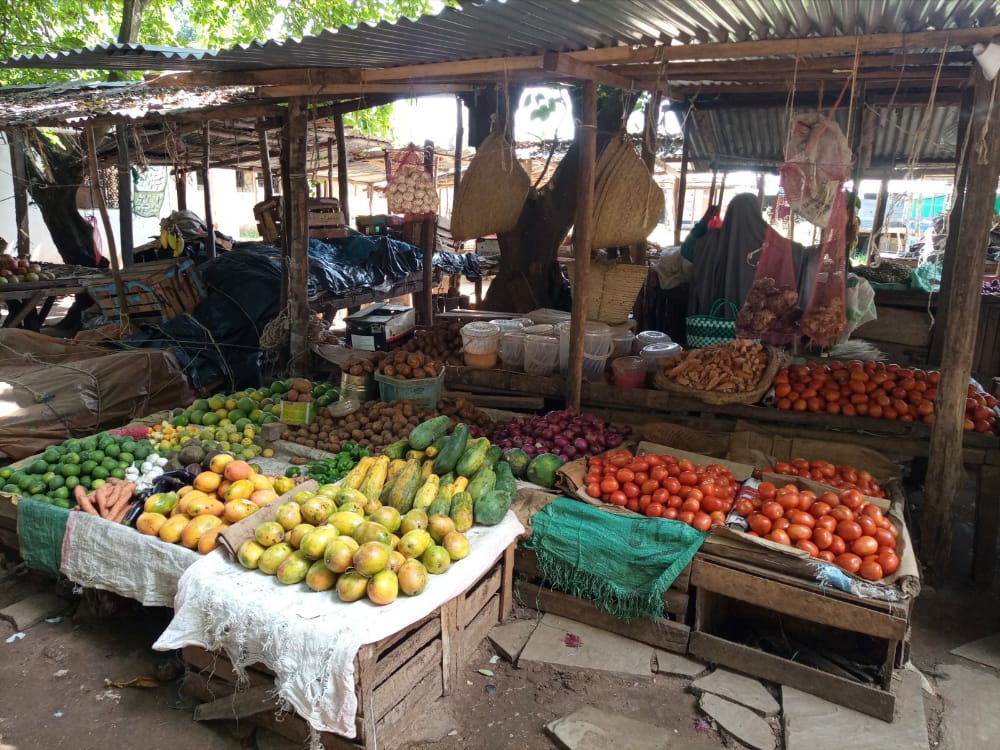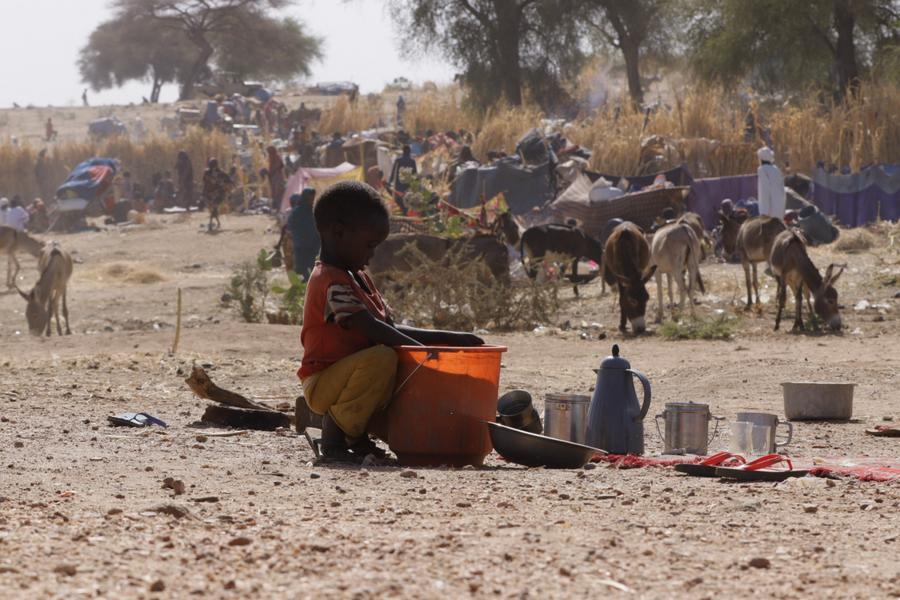Consumers welcome reduced food prices as farmers record good harvests

Inflation expectations in the next month pointed towards a general decline in prices.
As the end of the year nears, it seems to be a hopeful turn of events as consumers' sentiments about the general cost of living now paint a positive picture for the coming months.
A survey done by The Eastleigh Voice in October on some selected households, farm food markets and other outlets revealed that a majority are feeling the effects of lower prices on everyday goods.
More To Read
- IMF questions Kenya’s exchange rate policy amid new funding negotiations
- Businesses project job growth, stronger sales as festive season draws near
- Top 10 largest African economies in 2025 by Gross Domestic Product (GDP)
- Why farmers are not taking up loans for scaling up- experts
- IMF revises Kenya’s 2025 growth forecast upward to 4.8 per cent
- Rising food prices drive Kenya’s inflation to 4.6 per cent in September
This is mainly attributable to the bumper harvest received consecutively for the last two rainy seasons — last year's October to December and this year's March to May.
Arguably, this has reduced the cost of living for Kenyans who were hit by costly basic commodities on the back of low supply against high demand before the start of the two seasons.
"As a result of the lower prices, customers are coming in more frequently and they're more willing to spend," said a trader in the Mwiki-Kasarani area who identified himself as John and who sells cereals and other farm foods.
The Eastleigh Voice also established a noticeable decline in the sales of some food commodities and increased pressure on the traders to keep reducing food prices to attract customers.
Mary Mwoki, a fruits and vegetables trader along Kangundo Road, lamented the drastic and continuous reduction in the prices of farm food commodities.
Customers spoilt for choice
She noted that traders are lowering prices to attract customers who are spoiled for choice, as the market is flooded with easily accessible and affordable products.
John's and Mary's sentiments picture the prospect of a continued reduction in the general cost of living as the prices of essential food commodities keep reducing on good harvests.
Garnet Muhavi, a resident of Nairobi, said with the current pricing and the recent trend of continued decline in prices of some essential food commodities, she anticipates no further steep hikes in food prices in the two months to December.
"Supply of these commodities is now in plenty and at affordable prices. I, therefore, expect further ease in the coming two months," Muhavi said.
Her sentiments were echoed by Victor Mukabi, another city resident who said the current level of inflation will either remain unchanged or will decline further owing to the stabilisation and better performance of Kenyan shilling against the US Dollar, and the reducing fuel prices.
The latest figures by the Kenya National Bureau of Statistics (KNBS) quoted the level of inflation at a decade-low of 3.6 per cent in September.
Non-essential commodities
Mukabi was, however, sceptical of the prospect of non-food commodities in the coming two months.
"The two months considerably being the festive season, I presume there will be a slight increase in the prices of non-essential commodities, but things will still be manageable compared to the same period last year," Mukabi said.
Responses from the survey by The Eastleigh Voice mirror the report of the Central Bank of Kenya (CBK), the Agriculture Sector Survey, conducted in September prior to October's Monetary Policy Committee meeting.
The report showed that retail prices of most food items recorded price declines in September 2024 compared to the previous month.
These included sampled prices of sugar, freshly packed milk, wheat flour, maize grain and maize flour.
However, there were a few food items whose prices increased such as beans, cabbages and potatoes.
"Notably, there was a decrease in prices of most cereals and cereal products mainly supported by the bumper harvest following favourable rainfall outcomes in October-December 2023 and March-May 2024 rain seasons," the report reads.
From the survey, a larger proportion of respondents expected a general decline in food prices in the next month (October 2024).
This decline was mainly due to the expected decline in prices of most non-vegetable food items, mostly processed items such as sugar, maize flour and wheat flour.
However, respondents expected an uptick in prices of green maize and most fresh vegetables such as spinach, sukuma wiki (collard greens) and traditional vegetables, in line with seasonal factors.
Inflation
Prospects about overall inflation were dominated by expectations that it would either remain unchanged at September 2024 levels or even decline as the harvest season was underway in the food basket areas of Rift Valley and the western part of the country.
Inflation expectations in the next month pointed towards a general decline in prices, with 63 per cent of sampled respondents expecting a decline compared to 37 per cent who expected an increase.
Additionally, 54 per cent of sampled respondents expected overall inflation to either remain unchanged or decline against 46 per cent who expected an increase.
The expectations that inflation would remain unchanged at the September 2024 level or even decrease were largely informed by the observed increased supply of food items in the market, expectations that the exchange rate would remain stable and the observed stability in pump prices.
Nevertheless, the report notes that most respondents expect both acreage and output of select crops to increase in the next harvest.
"As was found in the previous farm survey of July 2024, most vegetables such as sukuma wiki, spinach, traditional vegetables, cabbages, and tomatoes, are expected to record increased acreage and output on account of continued favourable weather conditions."
Subsidised fertiliser
Some farmers reported that the favourable rainfall had raised the water table, thereby favouring farmers who rely on water from boreholes to irrigate their farms.
On the other hand, the proportion of respondents who reported having accessed the subsidised fertiliser was substantial at 68 per cent of the sampled farmers, with most farmers reporting a positive impact on output.
This was higher compared to 60 per cent of sampled farmers who reported to have benefited from the subsidised fertiliser in the July 2024 survey.
Optimism about economic performance in the next three months and one year ahead increased in September 2024, relative to outcomes observed in the July 2024 survey, with the protests experienced in June/July having ended.
Top Stories Today















































